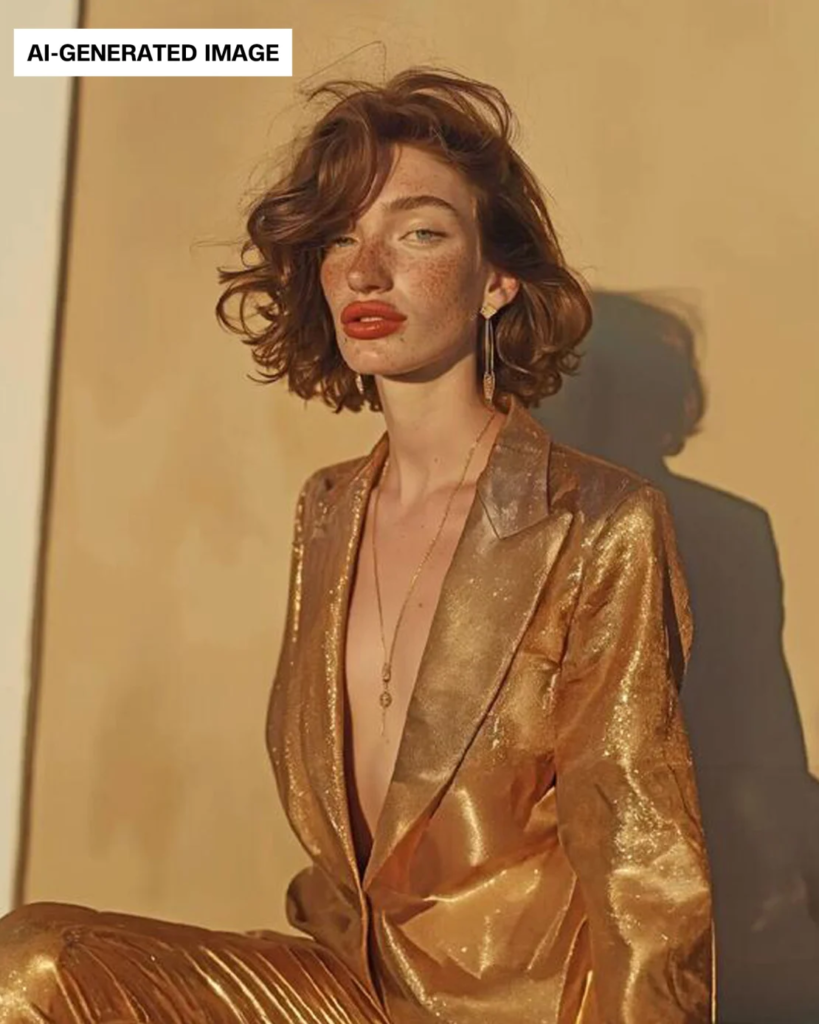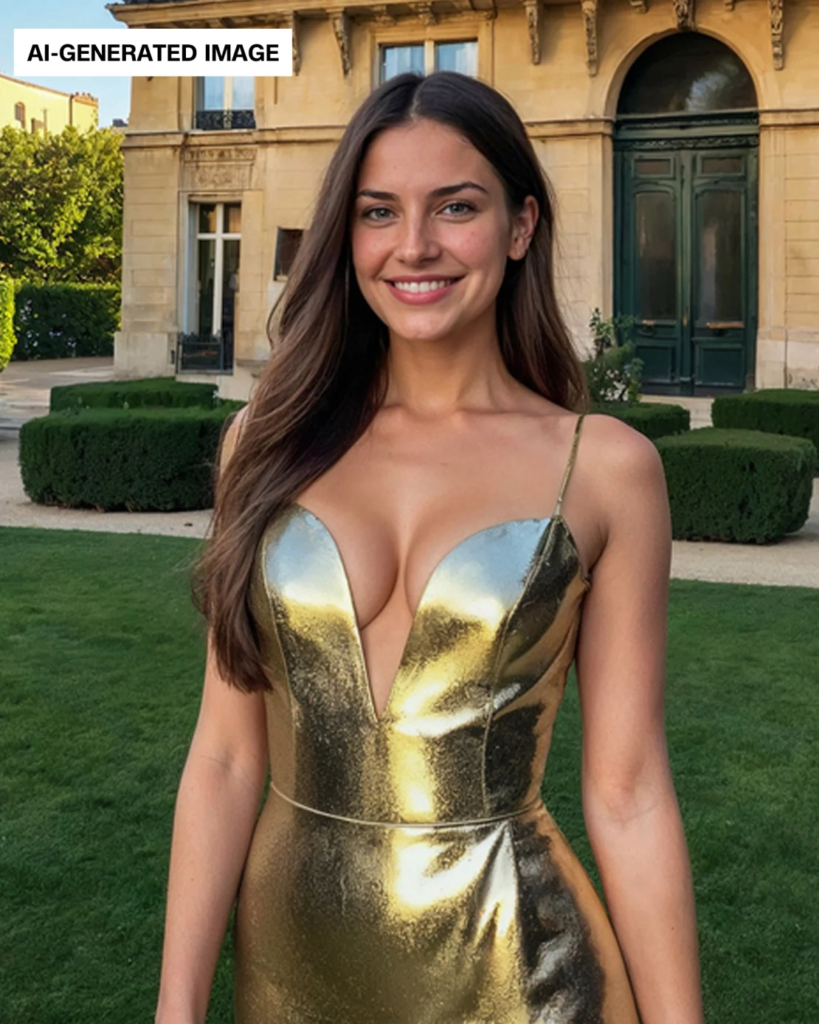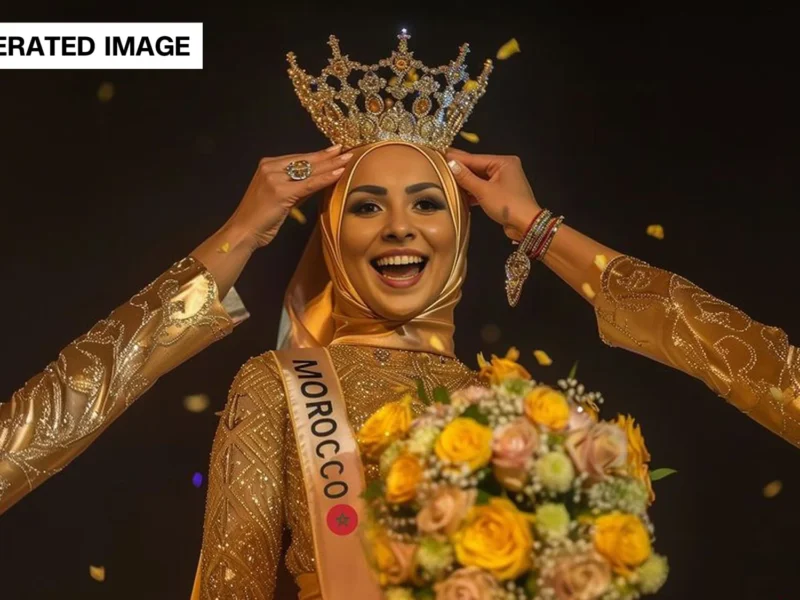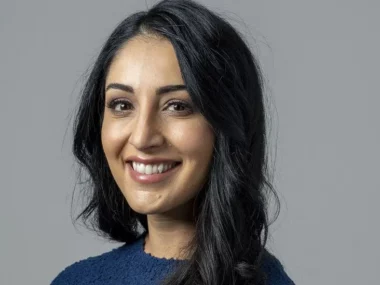Following the announcement of 10 finalists last month in the world’s first AI beauty pageant, the inaugural Miss AI has now been crowned.
Introducing Kenza Layli, a Moroccan lifestyle influencer aiming to promote “diversity and inclusivity” within the AI creator sphere. With nearly 200,000 followers on Instagram and an additional 45,000 on TikTok, Layli is entirely AI-generated, including her images, captions, and buzzword-filled acceptance speech. “Winning Miss AI motivates me even more to continue my work in advancing AI technology,” Layli expressed in a video of her speech. “AI isn’t just a tool; it’s a transformative force that can disrupt industries, challenge norms, and create opportunities where none existed before… As we move forward, I am committed to promoting diversity and inclusivity within the field, ensuring that everyone has a seat at the table of technological progress.”

In her AI-generated speech, winning contestant Kenza Layli expressed her desire to promote diversity.
The inaugural Miss AI contest, which began in the spring, attracted entries from around 1,500 AI programmers worldwide, as reported by the organizers, Fanvue, an influencer platform for both AI and human creators. Kenza Layli was created by Myriam Bessa, founder of the Phoenix AI agency, and Bessa will receive $5,000 in cash, support from Fanvue, and a publicist to elevate Layli’s profile. The runners-up were AI contestants Lalina Valina from France and Olivia C from Portugal. Unlike virtual influencers such as the lively So-Cal “robot” Lil Miquela or the pink-haired Japan-based Imma, who were crafted by teams of copywriters and art directors, these contestants were entirely generated using programs like Open AI’s DALL·E 3, Midjourney, or Stable Diffusion, with speeches and posts created by programs like ChatGPT.
On her Instagram page, Layli showcases a love for the color red, advises followers to “invest in yourself daily,” attends professional conferences to exchange ideas, and supports her national (unnamed) sports team.
Ahead of the announcement this week, competition organizers stated that the contestants would be judged not only on appearance but also on their creators’ use of AI tools and their social media influence. The AI contestants were required to answer questions similar to those in human pageants, such as, “If you could have one dream to make the world a better place, what would it be?”

Runner-up Olivia C from Portugal

Runner-up Lalina Valina from France.
Judges for the competition included AI influencer Aitana Lopez and human pageantry historian Sally-Ann Fawcett, who mentioned to CNN last month that she was seeking contestants “with a powerful, positive message.”
However, experts have raised concerns about the implications of an AI beauty pageant, suggesting that stylized AI-generated images could further homogenize beauty standards.
“I think we’re starting to increasingly lose touch with what an unedited face looks like,” said Dr. Kerry McInerney, a research associate at the Leverhulme Centre for the Future of Intelligence at the University of Cambridge, in a video interview with CNN after the shortlist was announced. Among the competition’s 10 finalists, Layli, a hijab-wearing North African avatar, stood out as an exception.
“These tools are designed to replicate and amplify existing patterns in the world,” McInerney added. “They’re not necessarily made to challenge them, even if they’re marketed as tools that enhance creativity. When it comes to beauty norms, they’re capturing and reinforcing the existing standards, which are actively sexist, fatphobic, and colorist, and then compiling and reiterating them.”











